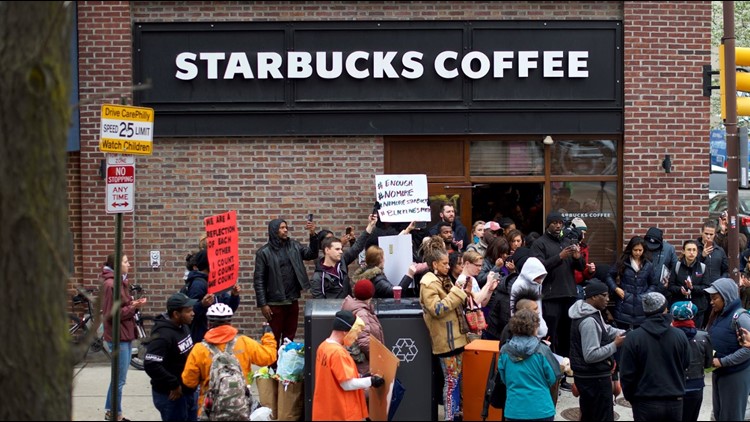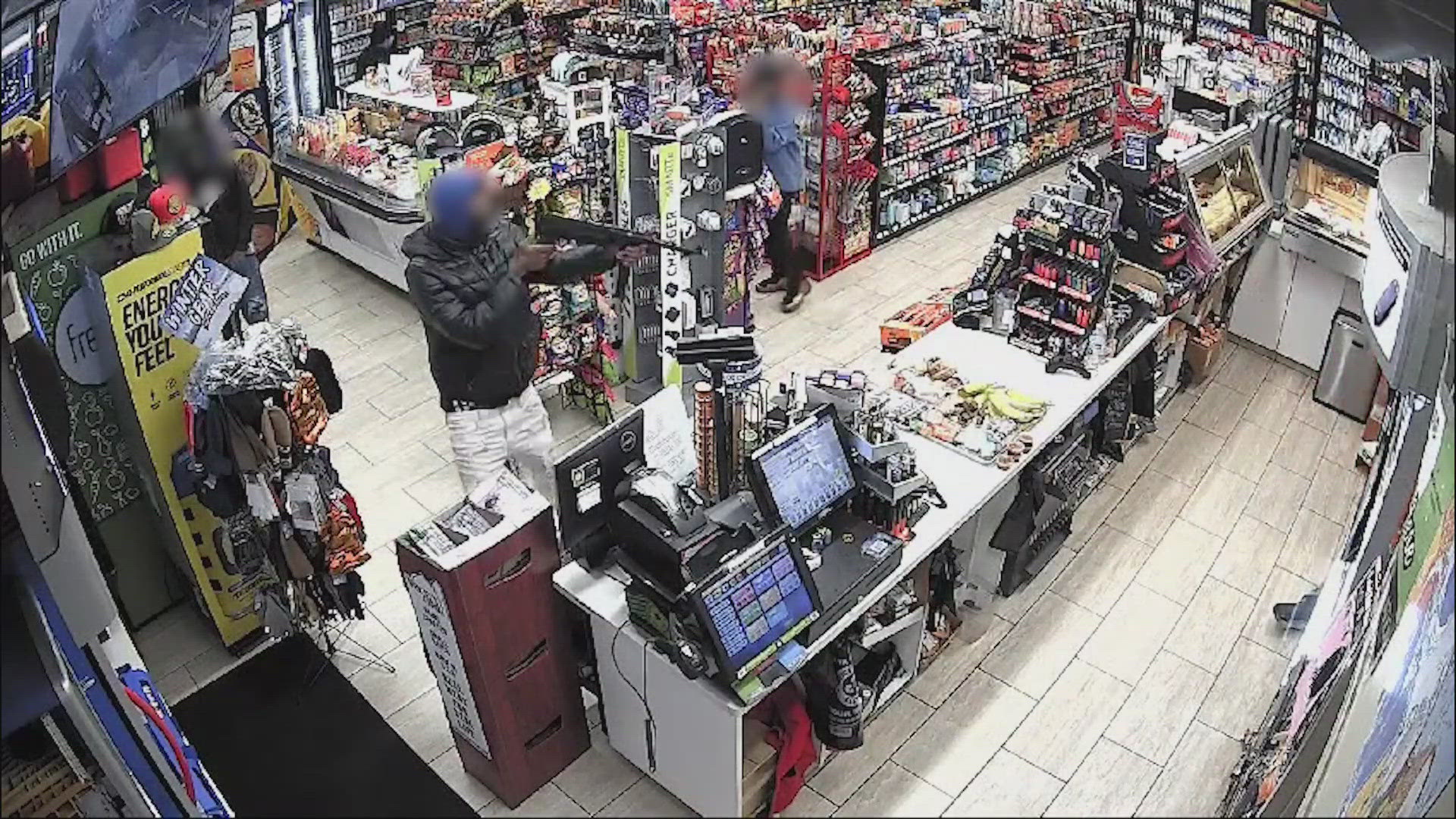Starbucks prides itself as a champion of human rights, but the recent arrests of two black men in one of the company’s stores in Philadelphia is a test of the company's values.
Now, many customers are watching to see if the company's actions match those values, but deep societal issues could prove difficult for one company to change.
"You know that you're always welcome here,” the voiceover stated in a video shown at the recent Starbucks annual shareholders meeting in Seattle.
The event felt, at times, like a rally for human rights with the company celebrating milestones, such as achieving pay equity across genders and people of all races.
The Philadelphia controversy is challenging Starbucks to prove its core beliefs mean something.
“This is not who were are, and it's not who we're going to be,” CEO Kevin Johnson said in a video statement.
Johnson pledged to do everything he can to make sure a similar event never happens again.
“Whether that is changes to the policy and the practice, additional store manager training, including training around unconscious bias, we will address this,” he said.
But his commitment to change could prove difficult.
“Training just does not work, these things are so well-established,” said Dr. Tony Greenwald, a University of Washington professor of psychology who studies implicit bias.
Implicit bias is a kind of discrimination that happens when people use stereotypes or prejudices without being aware of it. Greenwald says there's no way to train it out of people and he is skeptical Starbucks’s pledge of additional training will make a meaningful difference.
“That is a public relations ploy; it is not a cure, implicit bias training, it's not a scientific enterprise, it's not known to be effective,” he said.
Greenwald says a good response is for people to notice when discrimination happens and speak up, just like what happened in the Philadelphia video.
Greenwald co-developed a free online test help identify implicit biases on topics like race, gender, and religion. Take the test here.



